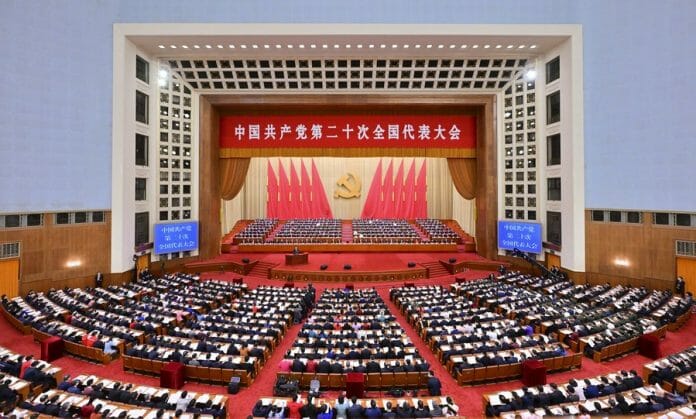The upcoming annual sessions of China’s top legislature and political advisory body will offer the world a window to observe the country’s development and understand its policy direction for the following year.
The second session of the 14th National People’s Congress (NPC) and the second session of the 14th National Committee of the Chinese People’s Political Consultative Conference (CPPCC) will open on March 5 and 4, respectively.
This year also marks the 75th anniversary of the founding of the People’s Republic of China and is a crucial year for the government to realise its goals and tasks of the 14th Five-Year Plan (2021-2025).
Notably, the development goals for 2024 are expected to be unveiled in the government work report, which will be deliberated at the NPC’s annual session. The report usually includes the country’s targets on gross domestic product (GDP) growth, inflation, the ratio of deficit to GDP, employment, and foreign trade and investment, among others.
One area that has been much talked about is the “New productive forces,” an emerging catchphrase in China’s policymaking, that is expected to be a hot topic garnering much attention.
The concept refers to a new form of productive forces derived from continuous sci-tech breakthroughs and innovation that drive strategic emerging industries and future industries in a more intelligent information era.
The Central Economic Work Conference, held late last year to chart economic development in 2024, said China would “promote industrial innovation through technological innovation… to foster new industries, new models and growth drivers, and develop new productive forces.”
At the Central Economic Work Conference, China pledged to expand high-level opening up and reinforce the stable performance of foreign trade and foreign investment.
A series of recent policy measures sent a clear signal that China is firmly committed to expanding opening up. For example, the country announced that it will remove all restrictions on foreign investment access in the manufacturing sector, and five new measures are already facilitating the entry of foreign nationals into China for business, education and tourism.
Zhang Junkuo, a national political advisor and former deputy director of the Development Research Center of the State Council, said amid rising anti-globalization sentiment and intensifying geopolitical tension, “it is particularly important for China to respond to uncertainties in the external environment with its certainty in opening up.”
Advancing reforms in key areas and crucial sectors will also be a focus of attention for national lawmakers and political advisors.
Accelerating the building of a unified national market is a concern of Jin Li, a national political advisor and vice president of Southern University of Science and Technology.
The “two sessions” displays China’s whole-process people’s democracy in action, as national legislators and political advisors — ranging from farmers to state leaders — gather in Beijing to deliberate on bills or discuss the affairs of the state.









